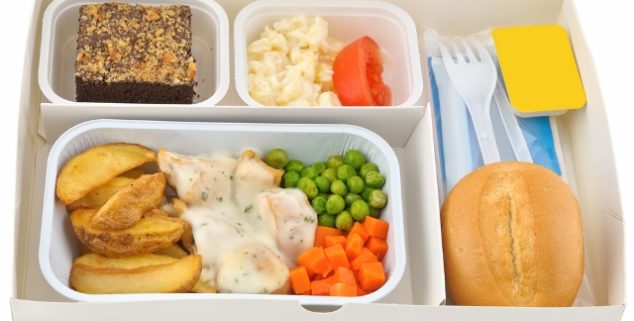Opinion
Needed: Food safety rules for meal deliverers
 A ready-to-eat meal kit. (Photo: Process, via Shutterstock)
A ready-to-eat meal kit. (Photo: Process, via Shutterstock)Across the Sacramento region, color-coded placards tell diners whether a restaurant passed a food safety inspection. In some counties, you can even use a smartphone app to check an eatery’s safety rating before you head to dinner. But for meal kits delivered to our homes from services like Blue Apron, safety standards can be as opaque as the cardboard box the food arrives in.
The explosion in start-up meal delivery services means a growing number of Californians could be at risk from food-borne pathogens that can cause serious illness or even death unless companies are held to food safety standards. That’s why the United Food and Commercial Workers are sponsoring a bill to close a gaping loophole in state law that allows meal preparation services to package raw food without the same public health measures that apply to every other food handling business.
Food trend website Eater reports that between 2012 when the first meal kit delivery service was launched to 2016, 150 companies have popped to package raw food for home consumption.
AB 1461 (Thurmond, D-Richmond) requires all employees who are involved in the preparation or storage of raw food at meal delivery companies to obtain a food handler card – the same requirement for all current food service establishments, from fast food to fine dining. A food handler card will ensure employees in food fulfillment centers have a reasonable level of training in proper food safety practices to reduce and prevent the potential for spreading foodborne illness.
Some meal kit industry leaders see the public health and good business value in food-handling standards; notably, Gobble proudly displays its food handlers’ safety certificates in the company’s front office. But news reports reveal Richmond’s own Blue Apron has bucked common-sense safety measures and carved out a position as an outlier in the industry by hiring high-priced lobbyists to fight a bill that would keep its customers safe.
A recent investigative report from Buzzfeed exposed the dangerous environment food handling workers face at Blue Apron’s Richmond packaging facility, where employees faced crushing pressure and suffered injuries after being forced to work in unsafe conditions. Would you trust a company that cuts corners on worker safety not to cut corners on the safety of food on your family’s plate?
Food trend website Eater reports that between 2012 when the first meal kit delivery service was launched to 2016, 150 companies have popped to package raw food for home consumption. Most are operating on venture capital dollars – having yet to generate revenue to cover their expenses, the pressure to deliver more meals at lower costs must not mean shortchanging safety.
When it comes to what you feed your family, what you don’t know CAN hurt you. That’s why it is imperative that as more and more families turn to meal kits like Blue Apron, they have the basic assurances of food safety AB 1461 will provide.
—
Ed’s Note: Jim Araby is executive director of the United Food and Commercial Workers Union Western States Council, an association of 11 local unions representing 200,000 workers.
Want to see more stories like this? Sign up for The Roundup, the free daily newsletter about California politics from the editors of Capitol Weekly. Stay up to date on the news you need to know.
Sign up below, then look for a confirmation email in your inbox.

If you are involved in the commercial aspect of food, and I include growing as well as preparing or delivering, there’s a measurable public benefit in knowing the best practices around food safety. It’s not grandmas kitchen anymore.